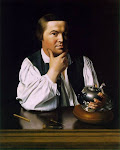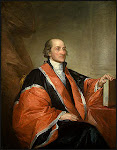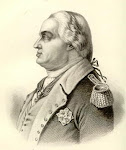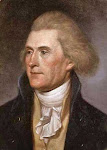"AMERICA"
"…FOUNDED ON CHRISTIAN PRINCIPLES"
BECAUSE WE ARE TRULY FREE & IT IS RIGHT, JUST, & FAIR….
"TO RAISE OUR VOICES IN PRAYER…ANYTIME, ANYWHERE!!"
"…FOUNDED ON CHRISTIAN PRINCIPLES"
BECAUSE WE ARE TRULY FREE & IT IS RIGHT, JUST, & FAIR….
"TO RAISE OUR VOICES IN PRAYER…ANYTIME, ANYWHERE!!"
Our Christian Founding Fathers have spoken with great conviction. Let us listen to their voices from generations ago, as they spoke in the Spirit of Jesus Christ and with sincere hearts & uncommon wisdom. They were some of the greatest men to ever live. Have we forgotten, already, that it is our God and Christian Values that truly made this country great?!!
John Adams:
"The general principles upon which the Fathers achieved independence were the general principals of Christianity… I will avow that I believed and now believe that those general principles of Christianity are as eternal and immutable as the existence and attributes of God. Our Independence ought to be commemorated as the day of deliverance by solemn acts of devotion to God Almighty." (In a letter written to his wife, Abigail on the day the Declaration was approved by Congress on July 2, 1776…yes, July 2nd)
Samuel Adams:
"He who made all men hath made the truths necessary to human happiness obvious to all… Our forefathers opened the Bible to all." ("American Independence," August 1, 1776. Speech delivered at the State House in Philadelphia)
Ben Franklin:
"God governs in the affairs of man. And if a sparrow cannot fall to the ground without his notice, is it probable that an empire can rise without His aid? We have been assured in the Sacred Writings that except the Lord build the house, they labor in vain that builds it. I firmly believe this. I also believe that, without His concurring aid, we shall succeed in this political building no better than the builders of Babel" (Constitutional Convention of 1787)
"In the beginning of the contest with Britain, when we were sensible of danger, we had daily prayers in this room for Divine protection. Our prayers, Sir, were heard, and they were graciously answered… do we imagine we no longer need His assistance?" (Constitutional Convention, Thursday June 28, 1787)
John Quincy Adams:
"Why is it that, next to the birthday of the Savior of the world, your most joyous and most venerated festival returns on this day [the Fourth of July]?" "Is it not that, in the chain of human events, the birthday of the nation is indissolubly linked with the birthday of the Savior? That it forms a leading event in the progress of the Gospel dispensation? Is it not that the Declaration of Independence first organized the social compact on the foundation of the Redeemer's mission upon earth? That it laid the cornerstone of human government upon the first precepts of Christianity"? (1837, at the age of 69, when he delivered a Fourth of July speech at Newburyport, Massachusetts)
"The Law given from Sinai [The Ten Commandments] was a civil and municipal as well as a moral and religious code." (Letter to his son)
John Hancock:
"In circumstances as dark as these, it becomes us, as Men and Christians, to reflect that whilst every prudent measure should be taken to ward off the impending judgments, …at the same time all confidence must be withheld from the means we use; and reposed only on that God rules in the armies of Heaven, and without His whole blessing, the best human counsels are but foolishness… Resolved; …Thursday the 11th of May…to humble themselves before God under the heavy judgments felt and feared, to confess the sins that have deserved them, to implore the Forgiveness of all our transgressions, and a spirit of repentance and reformation …and a Blessing on the … Union of the American Colonies in Defense of their Rights [for which hitherto we desire to thank Almighty God]…That the people of Great Britain and their rulers may have their eyes opened to discern the things that shall make for the peace of the nation…for the redress of America’s many grievances, the restoration of all her invaded liberties, and their security to the latest generations. (A Day of Fasting, Humiliation and Prayer, with a total abstinence from labor and recreation. Proclamation on April 15, 1775)
Patrick Henry (Orator of the American Revolution):
"This is all the inheritance I can give my dear family. The religion of Christ can give them one which will make them rich indeed." (Last Will and Testament)
"It cannot be emphasized too clearly and too often that this nation was founded, not by religionists, but by Christians; not on religion, but on the gospel of Jesus Christ. For this very reason, peoples of other faiths have been afforded asylum, prosperity, and freedom of worship here." (May 1765 Speech to the House of Burgesses)
"The Bible is worth all other books which have ever been printed."
Thomas Jefferson:
"The doctrines of Jesus are simple, and tend to all the happiness of man."
"Of all the systems of morality, ancient or modern which have come under my observation, none appears to me so pure as that of Jesus."
"I am a real Christian, that is to say, a disciple of the doctrines of Jesus."
"God who gave us life gave us liberty. And can the liberties of a nation be thought secure when we have removed their only firm basis, a conviction in the minds of the people that these liberties are a gift from God? That they are not to be violated but with His wrath? Indeed I tremble for my country when I reflect that God is just, and that His justice cannot sleep forever." (Excerpts are inscribed on the walls of the Jefferson Memorial in the nations capital) [Source: Merrill D. Peterson, ed., Jefferson Writings, (New York: Literary Classics of the United States, Inc., 1984), Vol. IV, p. 289. From Jefferson’s Notes on the State of Virginia, Query XVIII, 1781.]
Samuel Johnston:
"It is apprehended that Jews, Mahometans (Muslims), pagans, etc., may be elected to high offices under the government of the United States. Those who are Mahometans, or any others who are not professors of the Christian religion, can never be elected to the office of President or other high office, [unless] first the people of America lay aside the Christian religion altogether, it may happen. Should this unfortunately take place, the people will choose such men as think as they do themselves. [Elliot’s Debates, Vol. IV, pp 198-199, Governor Samuel Johnston, July 30, 1788 at the North Carolina Ratifying Convention]
James Madison:
"We’ve staked our future on our ability to follow the Ten Commandments with all of our heart."
"We have staked the whole future of American civilization, not upon the power of government, far from it. We’ve staked the future of all our political institutions upon our capacity…to sustain ourselves according to the Ten Commandments of God." [1778 to the General Assembly of the State of Virginia]
"I have sometimes thought there could not be a stronger testimony in favor of religion or against temporal enjoyments, even the most rational and manly, than for men who occupy the most honorable and gainful departments and [who] are rising in reputation and wealth, publicly to declare the unsatisfactoriness [of tem portal enjoyments] by becoming fervent advocates in the cause of Christ; and I wish you may give in your evidence in this way." (Letter by Madison to William Bradford, September 25, 1773)
In 1812, President Madison signed a federal bill, which economically aided the Bible Society of Philadelphia in its goal of the "mass distribution of the Bible." ("An Act for the relief of the Bible Society of Philadelphia" Approved February 2, 1813 by Congress)
"It is the mutual duty of all to practice Christian forbearance, love, and charity toward each other."
A watchful eye must be kept on ourselves lest, while we are building ideal monuments of renown and bliss here, we neglect to have our names enrolled in the Annals of Heaven. [Letter by Madison to William Bradford [urging him to make sure of his own salvation] November 9, 1772]
At the Constitutional Convention of 1787, James Madison proposed the plan to divide the central government into three branches. He discovered this model of government from the Perfect Governor, as he read: (Isaiah 33:22… "For the LORD is our judge, the LORD is our lawgiver, the LORD is our king; He will save us")
James McHenry (Signer of the Constitution):
"Public utility pleads most forcibly for the general distribution of the Holy Scriptures. The doctrine they preach, the obligations they impose, the punishment they threaten, the rewards they promise, the stamp and image of divinity they bear, which produces a conviction of their truths, can alone secure to society, order and peace, and to our courts of justice and constitutions of government, purity, stability and usefulness. In vain, without the Bible, we increase penal laws and draw entrenchments around our institutions. Bibles are strong entrenchments. Where they abound, men cannot pursue wicked courses, and at the same time enjoy quiet conscience."
Jebediah Morse:
"To the kindly influence of Christianity we owe that degree of civil freedom, and political and social happiness which mankind now enjoys. . . . Whenever the pillars of Christianity shall be overthrown, our present republican forms of government, and all blessings which flow from them, must fall with them."
John Peter Gabriel Muhlenberg:
In a sermon delivered to his Virginia congregation on Jan. 21, 1776, he preached from Ecclesiastes 3. Arriving at verse 8, which declares that there is a time of war and a time of peace, Muhlenberg noted that this surely was not the time of peace; this was the time of war. Concluding with a prayer, and while standing in full view of the congregation, he removed his clerical robes to reveal that beneath them he was wearing the uniform of an officer in the Continental army! He marched to the back of the church; ordered the drum to beat for recruits and over three hundred men joined him, becoming the Eighth Virginia Brigade. John Peter Muhlenberg finished the Revolution as a Major-General, having been at Valley Forge and having participated in the battles of Brandywine, Germantown, Monmouth, Stonypoint, and Yorktown.
Thomas Paine:
"It has been the error of the schools to teach astronomy, and all the other sciences, and subjects of natural philosophy, as accomplishments only; whereas they should be taught theologically, or with reference to the Being who is the author of them: for all the principles of science are of divine origin. Man cannot make, or invent, or contrive principles: he can only discover them; and he ought to look through the discovery to the Author."
"The evil that has resulted from the error of the schools, in teaching natural philosophy as an accomplishment only, has been that of generating in the pupils a species of atheism. Instead of looking through the works of creation to the Creator himself, they stop short, and employ the knowledge they acquire to create doubts of his existence. They labour with studied ingenuity to ascribe every thing they behold to innate properties of matter, and jump over all the rest by saying, that matter is eternal." ("The Existence of God--1810")
Benjamin Rush:
"I lament that we waste so much time and money in punishing crimes and take so little pains to prevent them…we neglect the only means of establishing and perpetuating our republican forms of government; that is, the universal education of our youth in the principles of Christianity by means of the Bible; for this Divine Book, above all others, constitutes the soul of republicanism." "By withholding the knowledge of [the Scriptures] from children, we deprive ourselves of the best means of awakening moral sensibility in their minds." [Letter written (1790’s) in Defense of the Bible in all schools in America]
"Christianity is the only true and perfect religion."
"If moral precepts alone could have reformed mankind, the mission of the Son of God into our world would have been unnecessary."
"Let the children who are sent to those schools be taught to read and write and above all, let both sexes be carefully instructed in the principles and obligations of the Christian religion. This is the most essential part of education" (Letters of Benjamin Rush, "To the citizens of Philadelphia: A Plan for Free Schools", March 28, 1787)
Justice Joseph Story:
"I verily believe Christianity necessary to the support of civil society. One of the beautiful boasts of our municipal jurisprudence is that Christianity is a part of the Common Law. . . There never has been a period in which the Common Law did not recognize Christianity as lying its foundations." [Commentaries on the Constitution of the United States p. 593]
"Infidels and pagans were banished from the halls of justice as unworthy of credit." [Life and letters of Joseph Story, Vol. II 1851, pp. 8-9.]
"At the time of the adoption of the constitution, and of the amendment to it, now under consideration [i.e., the First Amendment], the general, if not the universal sentiment in America was, that Christianity ought to receive encouragement from the state, so far as was not incompatible with the private rights of conscience, and the freedom of religious worship." [Commentaries on the Constitution of the United States p. 593]
Noah Webster:
"The duties of men are summarily comprised in the Ten Commandments, consisting of two tables; one comprehending the duties which we owe immediately to God-the other, the duties we owe to our fellow men."
"In my view, the Christian religion is the most important and one of the first things in which all children, under a free government ought to be instructed...No truth is more evident to my mind than that the Christian religion must be the basis of any government intended to secure the rights and privileges of a free people." [Source: 1828, in the preface to his American Dictionary of the English Language]
Let it be impressed on your mind that God commands you to choose for rulers just men who will rule in the fear of God [Exodus 18:21]. . . . If the citizens neglect their duty and place unprincipled men in office, the government will soon be corrupted . . . If our government fails to secure public prosperity and happiness, it must be because the citizens neglect the Divine commands, and elect bad men to make and administer the laws. [Noah Webster, The History of the United States (New Haven: Durrie and Peck, 1832), pp. 336-337, 49]
"All the miseries and evils which men suffer from vice, crime, ambition, injustice, oppression, slavery and war, proceed from their despising or neglecting the precepts contained in the Bible." [Noah Webster. History. p. 339]
"The Bible was America’s basic textbook in all fields." [Noah Webster. Our Christian Heritage p.5]
"Education is useless without the Bible" [Noah Webster. Our Christian Heritage p.5]
George Washington:
"The name of American, which belongs to you, in your national capacity, must always exalt the just pride of Patriotism, more than any appellation derived from local discriminations. With slight shades of difference, you have the same religion" ...and later: "...reason and experience both forbid us to expect, that national morality can prevail in exclusion of religious principle
" It is impossible to rightly govern the world without God and Bible."
"What students would learn in American schools above all is the religion of Jesus Christ." [Speech to the Delaware Indian Chiefs May 12, 1779]
"To the distinguished character of patriot, it should be our highest glory to add the more distinguished character of Christian" [May 2, 1778, at Valley Forge]
During his inauguration, Washington took the oath as prescribed by the Constitution but added several religious components to that official ceremony. Before taking his oath of office, he summoned a Bible on which to take the oath, added the words "So help me God!" to the end of the oath, then leaned over and kissed the Bible.
Is it necessary that any one should [ask], "Did General Washington avow himself to be a believer in Christianity?" As well may we question his patriotism, his heroic devotion to his country. His mottos were, "Deeds, not Words"; and, "For God and my Country." (Letter to Nelly Custis-Lewis, Washington’s adopted daughter).
"O Most Glorious God, in Jesus Christ, my merciful and loving Father; I acknowledge and confess my guilt in the weak and imperfect performance of the duties of this day. I have called on Thee for pardon and forgiveness of my sins, but so coldly and carelessly that my prayers are become my sin, and they stand in need of pardon."
"I have sinned against heaven and before Thee in thought, word, and deed. I have contemned Thy majesty and holy laws. I have likewise sinned by omitting what I ought to have done and committing what I ought not. I have rebelled against the light, despising Thy mercies and judgment, and broken my vows and promise. I have neglected the better things. My iniquities are multiplied and my sins are very great. I confess them, O Lord, with shame and sorrow, detestation and loathing and desire to be vile in my own eyes as I have rendered myself vile in Thine. I humbly beseech Thee to be merciful to me in the free pardon of my sins for the sake of Thy dear Son and only Savior Jesus Christ who came to call not the righteous, but sinners to repentance. Thou gavest Thy Son to die for me." [George Washington; from a 24 page authentic handwritten manuscript book dated April 21-23,1752 William J. Johnson George Washington, the Christian (New York: The Abingdon Press, New York & Cincinnati, 1919), pp. 24-35.]
"Although guided by our excellent Constitution in the discharge of official duties, and actuated, through the whole course of my public life, solely by a wish to promote the best interests of our country; yet, without the beneficial interposition of the Supreme Ruler of the Universe, we could not have reached the distinguished situation which we have attained with such unprecedented rapidity. To HIM, therefore, should we bow with gratitude and reverence, and endeavor to merit a continuance of HIS special favors". [1797 letter to John Adams]
James Wilson:
Signer of the Declaration of Independence and the Constitution Supreme Court Justice appointed by George Washington Spoke 168 times during the Constitutional Convention
"Christianity is part of the common law" [Sources: James Wilson, Course of Lectures [vol 3, p.122]; and quoted in Updegraph v. The Commonwealth, 11 Serg, & R. 393, 403 (1824).]
PUBLIC INSTITUTIONS:
- Liberty Bell Inscription: " Proclaim liberty throughout the land and to all the inhabitants thereof" [Leviticus 25:10]
Proposals for the seal of the United States of America:
"Moses lifting his wand and dividing the Red Sea"
–Ben Franklin
"The children of Israel in the wilderness, led by a cloud by day and a pillar of fire by night."
- Thomas Jefferson
On July 4, 1776, Congress appointed Benjamin Franklin, Thomas Jefferson and John Adams "to bring in a device for a seal for the United States of America." Franklin's proposal adapted the biblical story of the parting of the Red Sea. Jefferson first recommended the "Children of Israel in the Wilderness, led by a Cloud by Day, and a Pillar of Fire by night. . . ." He then embraced Franklin's proposal and rewrote it Jefferson's revision of Franklin's proposal was presented by the committee to Congress on August 20, 1776.
The Three Branches of the U.S. Government: Judicial, Legislative, & Executive
At the Constitutional Convention of 1787, James Madison proposed the plan to divide the central government into three branches. He discovered this model of government from the Perfect Governor, as he read Isaiah 33:22: "For the LORD is our judge, the LORD is our lawgiver, the LORD is our king; He will save us."
Article 22 of The Constitution of Delaware (1776) Required all officers, besides taking an oath of allegiance, to make and subscribe to the following Declaration:
"I, [name], do profess faith in God the Father, and in Jesus Christ His only Son, and in the Holy Ghost, one God, blessed for evermore; and I do acknowledge the Holy Scriptures of the Old and New Testament to be given by divine inspiration."
New York Spectator (August 23, 1831)
"The court of common pleas of Chester County, [New York] rejected a witness who declared his disbelief in the existence of God. The presiding judge remarked that he had not before been aware that there was a man living who did not believe in the existence of God; that this belief constituted the sanction of all testimony in a court of justice: and that he knew of no cause in a Christian country where a witness had been permitted to testify without such belief.
NEW ENGLAND SCHOOL PRIMER
NEW ENGLAND SCHOOL PRIMER
Used in public and private schools from 1690 to 1900, second only to the Bible:
- Some of its contents: Song of praise to God; Prayers in Jesus’ name; The famous Bible alphabet; & a shorter Catechism of faith in Christ.
Compiled by William D. Park
"In the Name of Our Lord & Savior, Jesus Christ"
"IN GOD WE TRUST & GOD BLESS AMERICA!!"
"IN GOD WE TRUST & GOD BLESS AMERICA!!"
.jpg)

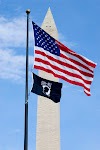

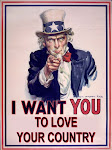
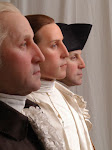
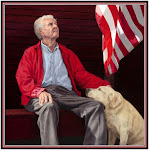


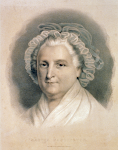

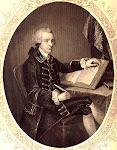
.jpg)
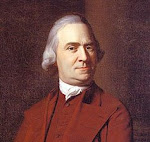
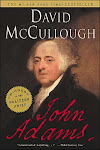


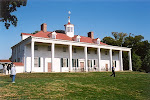
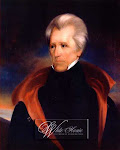

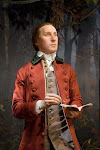


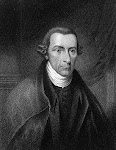
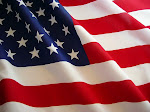


+%26+Tabitha+Simmons+(1765-1850)+Stone+at+Richmond+Cemetery,+KY.jpg)


